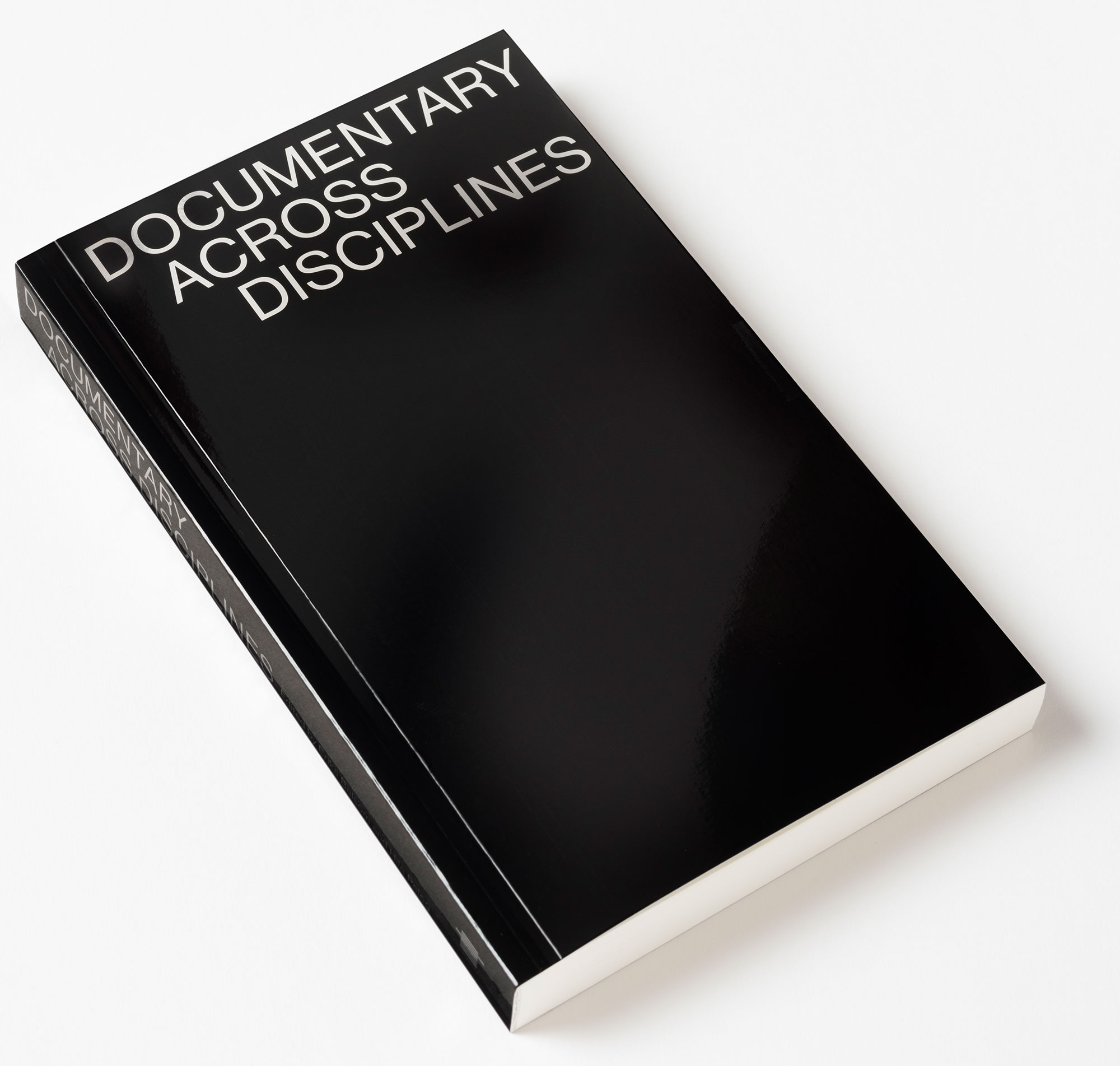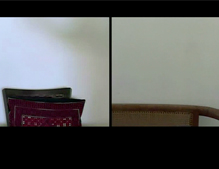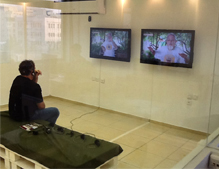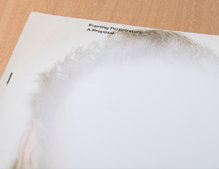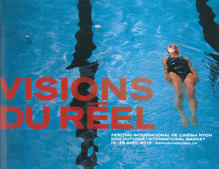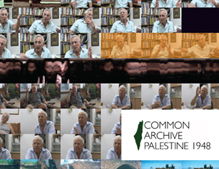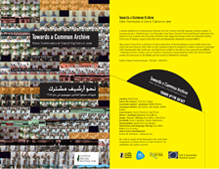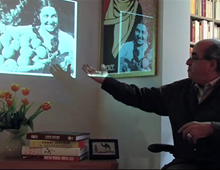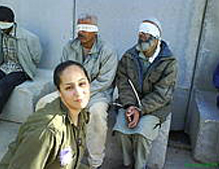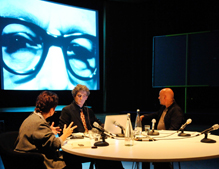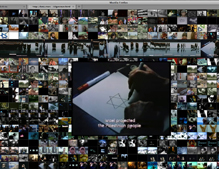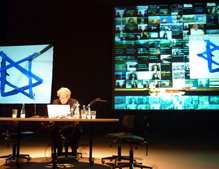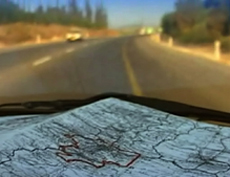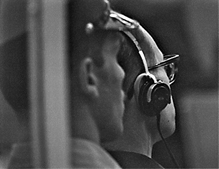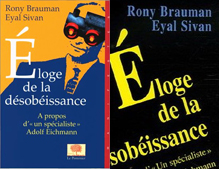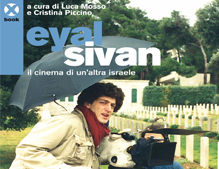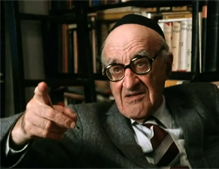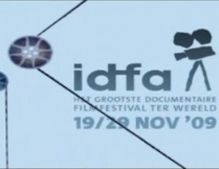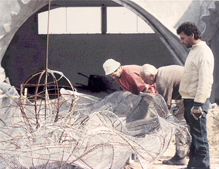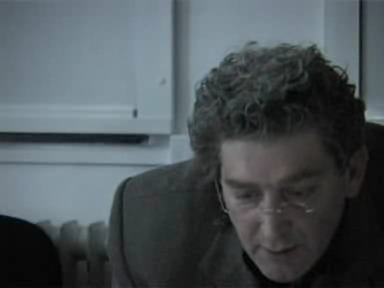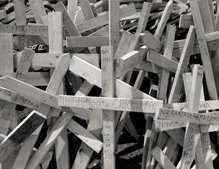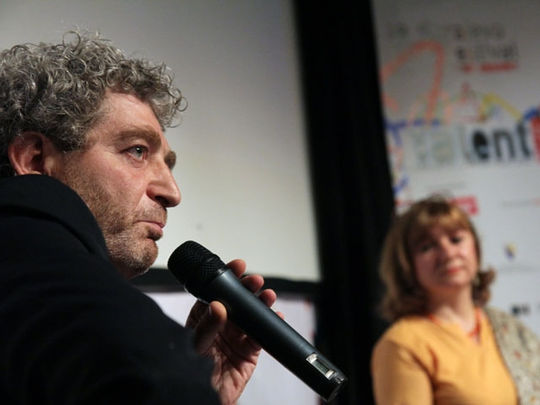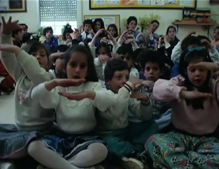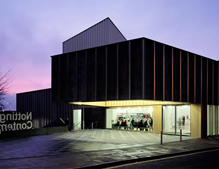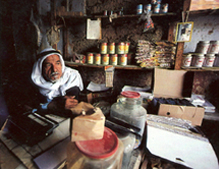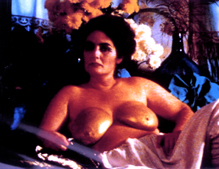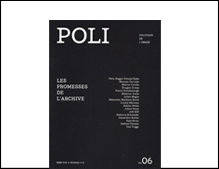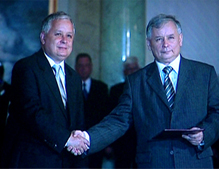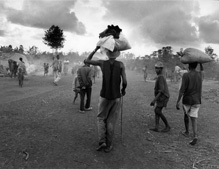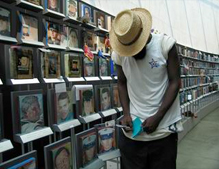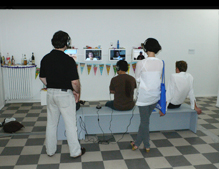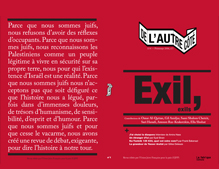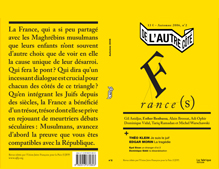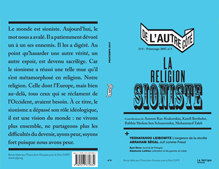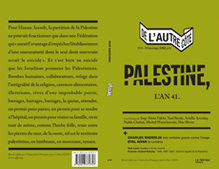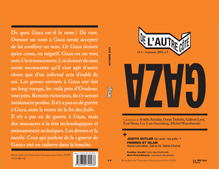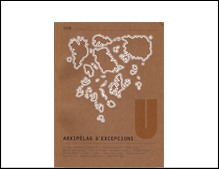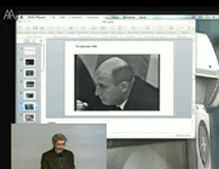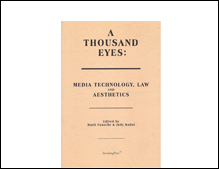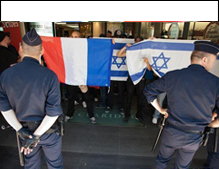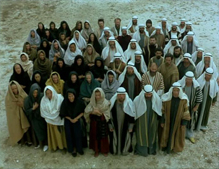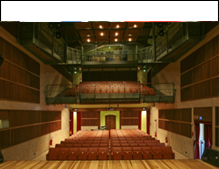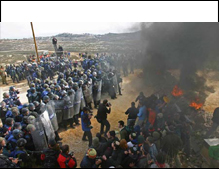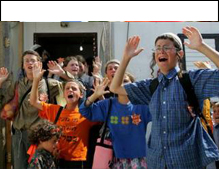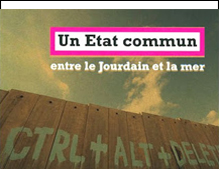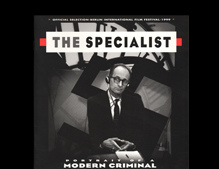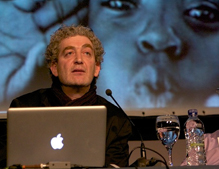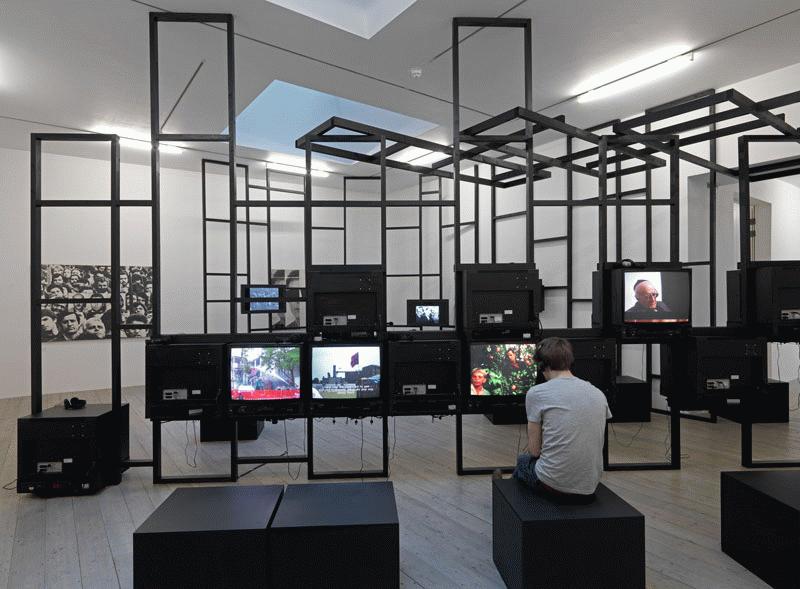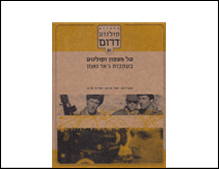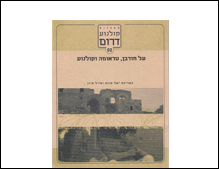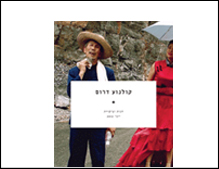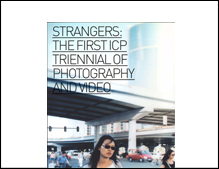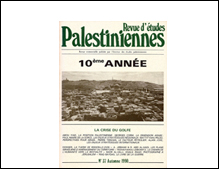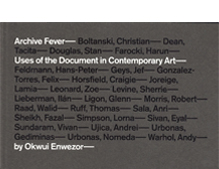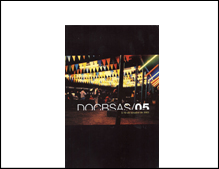-
Proposal for a visual media exhibition
with the participation of students of the Master of Film at the Dutch Film Academy, Amsterdam -
Get my films
Buy DVDs online at www.momento-films.com -
IZKOR
slaves of memory
Documentary film | 1990 | 97 min | color | 16mm | 4:3 | OV Hebrew ST -
Common Archive Palestine 1948
web based cross-reference archive and production platform
www.commonarchives.net/1948 - Project in progress - -
Montage Interdit [forbidden editing]
With professors Ella (Habiba) Shohat and Robert Stam / Berlin Documentary Forum 2 / Haus der Kulturen der Welt / June 2012 -
Route 181
fragments of a journay in Palestine-Israel
Documentary film co-directed with Michel Khleifi | 2003 | 272 min [4.5H] | color | video | 16:9 | OV Arabic, Hebrew ST
-
The Specialist
portrait of a modern criminal
Documentary film | 1999 | co-author Rony Brauman | 128 min | B/W | 4:3 | 35 mm | OV German, Hebrew ST -
Jaffa
the orange's clockwork
Documentary film | 2009 | 88 min | color & B/W | 16:9 | Digital video | OV Arabic, Hebrew, English, French ST
-
Montage Interdit
www.montageinterdit.net
Web-based documentary practice. A production tool, archive and distribution device | project in progress
-
Common State
potential conversation [1]
Documentary film | 2012 | 123 min | color | video | 16:9 split screen | OV Arabic, Hebrew ST -
Towards a common archive
testimonies by Zionist veterans of 1948 war in Palestine
Visual Media exhibition | Zochrot Gallery (Zochrot visual media lab) | Tel-Aviv | October 2012 - January 2013
-
I Love You All
Aus Liebe Zum Volk
Documentary film co-directed with Audrey Maurion | 2004 | 89 minutes | b/w & color | 35mm | OV German, French ST
CAMP FOLLOWER
ALTHOUGH many of the entries in this year's Jerusalem Film Festival are the work of experienced directors, the award-winning Akabat Jaber - Vie de Passage (Passing Through) is the first film of 22-years-oId Israeli director Eyal Sivan.
Sivan, who now lives in France, returned to Israel last year and lived with a French film crew in the Akabat Jaber refugee camp near Jericho for 13 days. Recently, the documentary won the Grand Prix at the 1987 Cinema du Reel held annually in Paris. Lia Van Leer, director of the Jerusalem Cinematheque and the film festival, chose it "because of the recognition it received in France and because of the important political nature of the film." It was shown on June 29 and July 1.
In the early 1950s the Akabat Jaber refugee camp, erected by Unrwa, had 65,000 inhabitants, making it the largest refugee camp in the Middle East. After the Six-Day War, the majority of the inhabitants fled to Jordan, and in 1985 the military, authorities destroyed 4,700 empty huts. Today, 2,500 people remain _in a forgotten ghost town.
Most of the inhabitants of Akabat Jaber do not consider their stay there permanent, even though many have raised children and grandchildren in the camp. They are waiting to return to their villages, for things to return to the way they once were. The men, women and children of Akabat Jaber are just passing through.
"For me, the most important aspect of the film was the people, not the politics," said Sivan in a recent interview here. "I first went to Akabat Jaber in 1982 while working here as a fashion photographer. I thought that the huts I had seen as a child were completely deserted. Then 1 saw children playing, and was shocked to realize that people still lived there.
"After that, Akabat Jaber was always on my mind, and finally, three years later, a friend, Noa Gedy, and I came up with the idea of a documentary. I then came back and spent three days talking to people at the camp to see if they would be receptive to the idea of being filmed. "
In November last year, with credit from a bank in Paris and some additional funds from Thibaut de Corday, his partner at Dune Vision Films and executive producer of Akabat Jaber, Sivan and a 12-person crew arrived at the camp to film.
Without any previous directorial experience, Sivan proceeded, with the help of a Palestinian interpreter who translated from Arabic to French, to interview and film the people of Akabat Jaber. All the interviews were spontaneous and unrehearsed.
"In the end, we interviewed 28 people and all of them are in the film," said Sivan. "They are different types of people and there is not one main character, but all of them tell the same story. No matter if they are young or old, the story remains constant, with only a few minor changes in detail.
"They didn't say what we were expecting them to say. They didn't talk about the Jews doing this to them or the Israelis doing that. The main making they talked about was roots. How good life was before and how bad it is today. They are making myths of the past and living in the past, and that has become their present reality.
"The people of Akabat Jaber do not have a survival problem or a fear of death. What they do have is a strong fear of not having any real permanence. They hope that things will change, yet they know that they won't. For them, life is like saying, 'Why wake up in the morning if you know you will just have to go back to sleep again at night?' Thus, in order to keep their hope alive, they must stay refugees, which implies to them, that someday they will return to their homes. "
Sivan pointed out that the interviews in the film illustrate a rhythm of life.
"A lot of refugees around the world live like those in Akabat Jaber - waiting and uprooted." he said. "In Israel, the refugees have more of an effect however, because we had some hand in their situation.
"I am not making a specific political statement or laying blame, but most Israelis don't know about the destroyed villages where there are kibbutzim and parks. It happened. And we must now recognize that Palestinians are people with emotions too. I think most Israelis tend to forget that in their everyday lives."
THE CINEMATOGRAPHY of the documentary is striking. Turquoise-bordered doors and windows and the stark whitewashed walls of the mud huts at times look like still photographs. Nurit Aviv's superb camera work has captured the day-to-day life of Akabat Jaber -women baking and standing in line for food rations, children playing, old men sitting.
Many of those interviewed speak about their strong connection to the land and the longing for their own place to cultivate and nurture. "We, above all, cannot live without trees," says one man. "And all that brightens a man's heart and pleases his eye. "
An older resident, questioned why he planted trees and a garden outside his home, replied that it was mainly to decorate the house and to give the children fruit to eat.
"If you mean that maybe we're going to settle down here, it's no… We hope that tomorrow, if not today, we'll leave and return to our village and not to exile somewhere else."
The older generation are nostalgic for the homes and villages that they remember or have heard stories about.
A younger generation of inhabitants, too, recognize Akabat Jaber as the place they were born, but not as their home or homeland.
"For us young people, the land is an arm," says one. "Once you have it you don't give it up. Even after a million years we won't give up our land. Those of us who are young men, if we had arms to fight, we wouldn't waste a minute... The land, for me, is my very soul."
In addition to the refugees, Bedouin have also settled in the camp and now call Akabat Jaber home.
One Bedouin who bas moved his family from the wandering life to a more settled life in Akabat Jaber stresses that even though they are living there, they have still maintained their customs. "We've got problems with the authorities who stop us from moving around the mountains and desert, so we're here in this camp... we're still Bedouin, and live Bedouin lives, following Bedouin traditions...we'll keep them even for 100 years." The family's tent, hand-woven from wool, lies folded up in the courtyard.
The world-renowned French photographer Henri Cartier-Bresson, was asked to see Akabat Jaber in order to give Sivan and de Corday the opinion of someone not involved in the subject. His comment was that it was about "the humiliation of being severed from their land, their orchards, their villages. Nothing happens in the film, because nothing happens in their lives. Endlessly waiting, some still cling to the hope of returning one day to their land. It is not a silent film. It cries out in its simplicity, wrenching the heart. "

